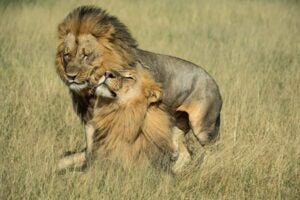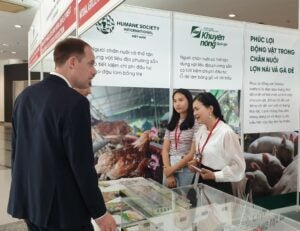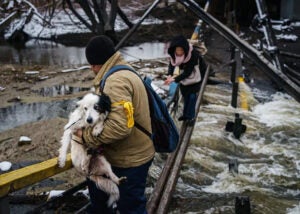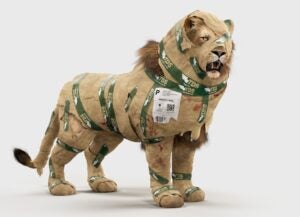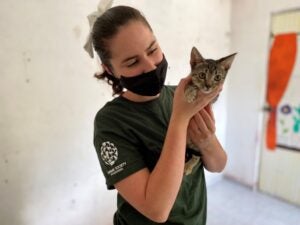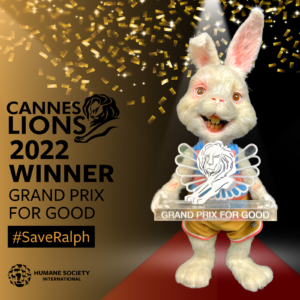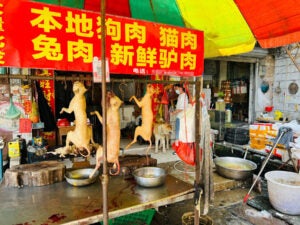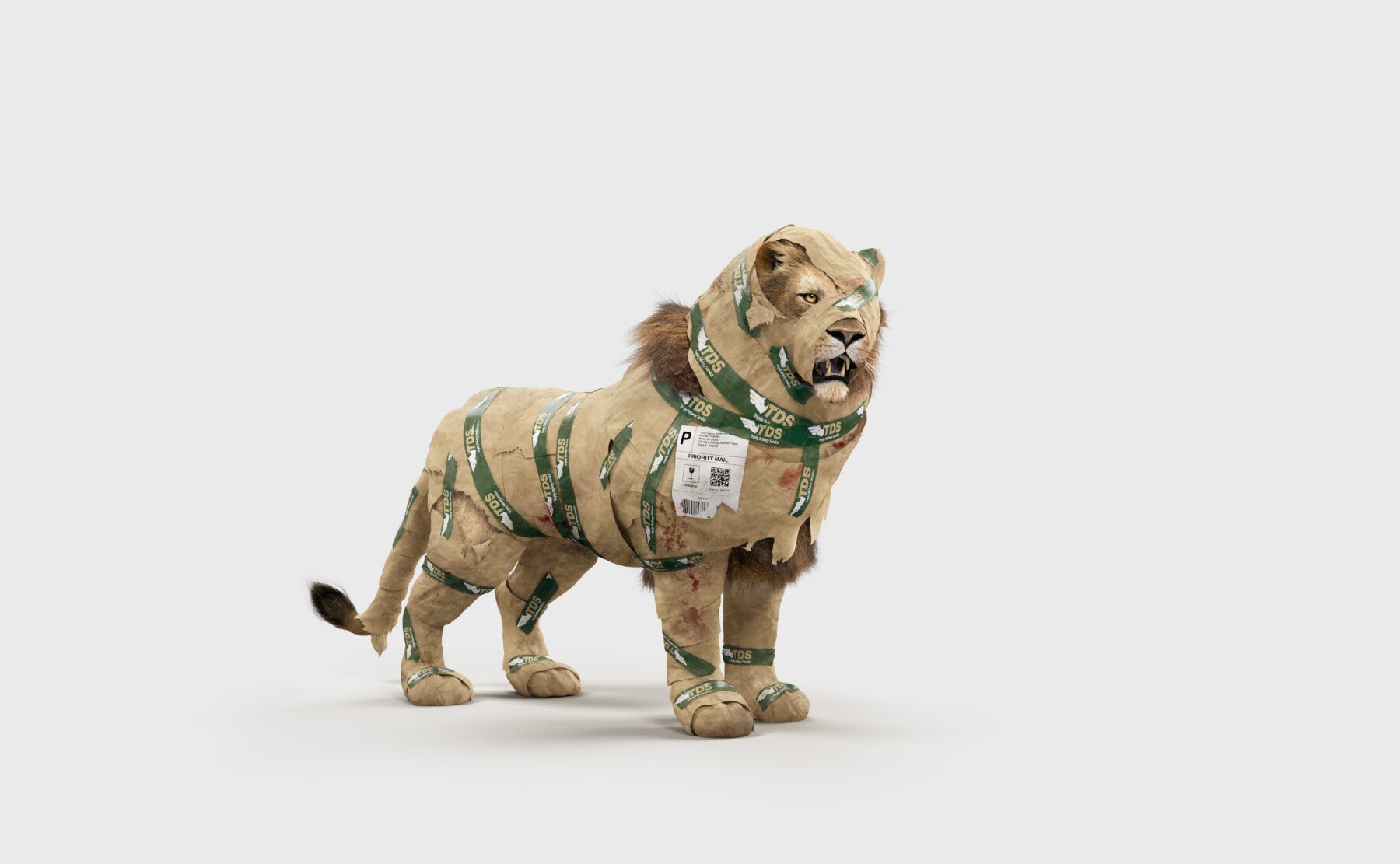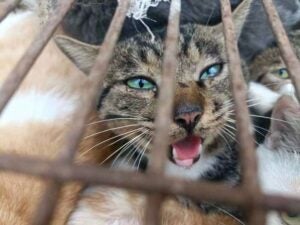
BEIJING—Members of a criminal gang in the city of Jinan, in east China’s Shandong province, have been arrested by local police for using live-caught sparrows to lure cats who they sold to the meat trade, according to the Chinese animal protection group Vshine. Thirty one sparrows–a protected species in China–were retrieved at the scene along with seven cages crammed with 148 cats who had been captured by the thieves; two kittens were born post-rescue. Jinan Zhuang Qiu District Police Office also found the gang’s fleet of mopeds fitted with cages for collecting captured cats, and reported that the thieves caught curious local pet and community cats by placing the flapping and chirping sparrows inside a wire bag within a remote controlled trap.
Although China has no national animal protection laws with which to prosecute the gang for cruelty to the cats, Chinese law generally prohibits possession of protected sparrows and given that two local Jinan residents identified their stolen pets among the caged cats, the individuals who were arrested may also be charged with violating laws prohibiting property theft.
Mr Huang from Vshine, who was at the scene, said: “We had been tracking this gang of cat thieves and traders for a while and finally found the place they stored all the cats they stole from the streets. These poor animals were tightly crammed together in rusty cages waiting to be shipped off to south China to be killed for meat. It was shocking to see the state they were in, many of them emaciated and crying out. Our discovery of dozens of live sparrows used as bait to lure the cats was also a big shock, but shows the lengths these ruthless traders will go to. We are really grateful that the local Jinan police accompanied us on the rescue and detained the cat traders. Although sadly the men responsible won’t face charges for the suffering they caused the cats, we are pleased to see the police increasingly using other laws at their disposal to crack down on this cruel trade.”
The cats are now being cared for by Jinan activists and local shelter groups. Vshine will also look after some of the cats at their shelters in northern China, which are partially funded by global animal protection organisation Humane Society International, which campaigns across Asia for an end to the dog and cat meat trades.
Peter Li, HSI China policy specialist, said: “These cat thieves were using quite sophisticated techniques to catch cats for the meat trade—baiting traps with sparrows, using remote controlled electronic devices to close the cages after catching a cat, and moving around the city on motorcycles to transport cats to the holding depot. This sparrow method is mostly used in urban communities where cat lovers feed as well as spay and neuter roaming community cats. Unlike neglected and hungry street cats who can be caught with fish or meat, these cats are well fed but would have been attracted by the flapping birds. We don’t how long these poor cats had been caged up without food or water in China’s extremely hot weather, but had it not been for the police and rescuers, they would have gone on to suffer even more being driven for miles across China to be killed in markets and slaughterhouses in Guangdong and Guangxi provinces in south-west China to satisfy a dwindling number of people who consume their meat. These are China’s two main cat meat eating hotspots. Throughout the rest of mainland China, cat meat is not part of the food culture at all.”
The 29 sparrows who survived were released back into the wild. Once the cats have received immediate veterinary care, the shelters will determine the options for adoption. They will also appeal for owners of missing cats to come forward for further possible reunions. The street cats, who would not adapt well to longer term shelter care or home adoption, will be released back to community carers.
Facts:
- Most people in China don’t eat dogs and cats. In fact they are only eaten infrequently by a small percentage of the Chinese population. Even so, it is estimated that as many as four million cats a year could be killed for the meat trade.
- In 2020, two major cities in mainland China–Shenzhen and Zhuhai–banned the consumption of dog and cat meat, a decision polling of 378 million people in mainland China by news site ifeng.com shows is supported by nearly 75% of Chinese citizens.
- Sparrows are protected by China‘s 2000 State Protected Wildlife List of Animals of Important Economic and Scientific Research Value, items 634 and 635.
ENDS
Download video and photos of the cat rescue
Media contact: Wendy Higgins, Humane Society International director of international media, whiggins@hsi.org

